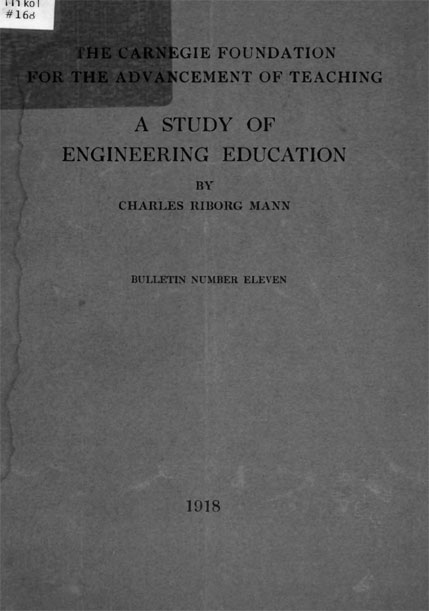It has been 100 years since the Carnegie Foundation for the Advancement of Teaching released a study on engineering education authored by Charles Riborg Mann. In his study, 1,500 engineers replied to a questionnaire about what they believed to be the most important factors in determining probable success or failure as an engineer. Overwhelmingly, personal qualities were considered seven times more important than knowledge of engineering science.

A second circular letter stating Mann’s results was sent to 30,000 members of four large engineering societies, and each member was asked to number the six qualities needed for top engineers. The top six qualities were:
- Character
- Judgment
- Efficiency
- Understanding of others
- Knowledge
- Technique
Notice that the top four are soft skills while only the last two were hard skills?
Education Has Not Changed
A quick study on curriculum used in high schools, community colleges, colleges and universities across this country reveals that nothing has changed in 100 years. Educational institutions simply ignore the research on soft skills along with the requests of their local employers. They continue to teach the technical knowledge and skill sets for an occupation but leave out the soft skills assessment and training that are critical to success in any occupation.
After working in this industry for over forty years, I have come up with the conclusion that soft skills are not taught because there is an assumption that students already have these skills, even when employer advisory panels tell them that their graduates do not.
Bad Assumptions Lead to Bad Results
In most situations, educational institutions assume that their students posses these skills, learning them either from their families or other life experiences. This may have had some validity in the past, but if parents or other adults do not possess soft skills, how can they teach them to others?
This incorrect assumption leads to costly errors in the hiring process. I don’t have to go into the cost of a mis-hire. It is sufficient to say that, when a student leaves a college, enters the working world, and does not even know enough to show up on time every day, the cost to the employers is in the tens of thousands of dollars, to say nothing of the cost to the self-confidence of the employee.
Check the Standards
I once asked a good friend of mine who worked for a state Department of Public Instruction if he could give me the standards for freshmen algebra. After several weeks of searching, he came back to me and was embarrassed to say that there were no standards other than seat time. Since then, there has been a push to create state and national education standards for academics. A quick check on those reveals that there are still no standards for soft skills.
80/20 rule
It was established back in 1918 by Mann’s study on engineering education that approximately 80 percent of success is due to soft skills while 20 percent is due to hard skills.
I ask a simple question—why has this fact been ignored by the educational establishment for 100 years?

